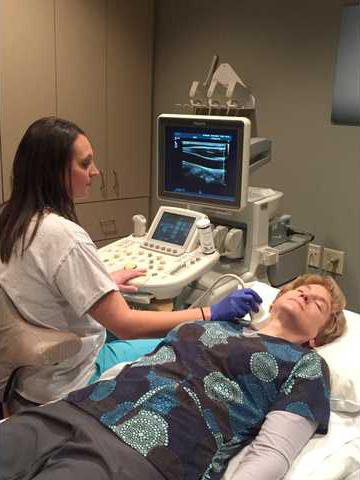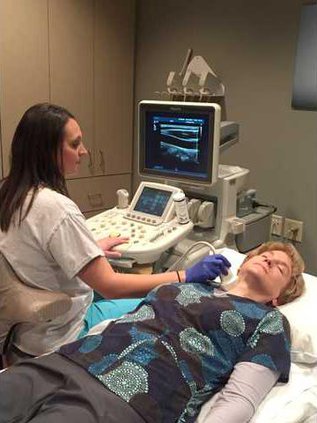St. Rose Health Center provides cardiac rehabilitation for patients after a heart-related event but they also realize the importance of preventing problems from occurring in the first place.
Since February is American Heart Month, Shannon Deines, imaging supervisor, shared information on the three cardiovascular screenings available at St. Rose. She encourages the community to take advantage of these screenings to help prevent a variety of concerns.
“Each non-invasive test takes less than 30 minutes and the cost is very affordable,” Deines said. “Anyone concerned about cardiovascular disease is encouraged to call for an appointment.
“When screens detect a problem, we refer patients to their primary-care physicians,” she added. “When a problem is not detected, the patient can enjoy peace of mind.”
One screen checks for peripheral arterial disease (PAD) to help determine the risk of blockages in leg arteries.
“Those who are wondering about PAD might consider a few questions,” Deines suggested. “For example, do you have leg cramping, aching or fatigue when you walk? Do you have poorly healing ulcers on your feet or toes? Do you smoke, or have hypertension, diabetes or high cholesterol?”
A stroke scan also is available at St. Rose. This is an ultrasound test to see inside the carotid arteries in the neck. It can detect early signs of plaque build-up.
And the third screening involves a scan for an abdominal aortic aneurysm, which is a ballooning of the arterial wall that may cause the artery to burst.
A doctor’s referral is not necessary for any of these screenings, and the fee for each is $30. However, if someone chooses to have all three at the same time, the total cost is $75. Cash and checks are accepted.
“When screening results are available, we mail them to the patients,” Deines noted. “They can share results with their doctors.
“If any concerns are detected,” she elaborated, “we will recommend they follow up with their doctor for further testing. This type of preventive health care can go a long way to preventing or alleviating more serious conditions in the future.”








